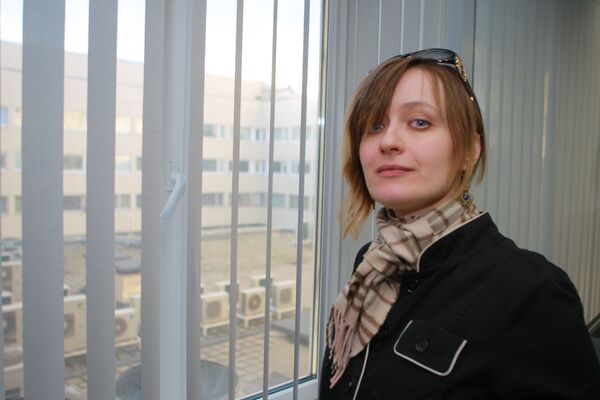Do you know a single Russian filmmaker who doesn’t complain about the industry? I sure don’t.
If there isn’t enough government funding, then the government funding is considered “too much” - making young filmmakers complacent and far too eager to please their bureaucratic overlords. If the audience members aren’t considered outright idiots, then they are simply referred to as apathetic - or else downright “unpatriotic,” what with their peculiar habit of gravitating more towards Western mass market fare (while a whole lot of Russian mass market fare cannot compete with the likes of James Cameron at the box office). If the huge illegal downloading scene hasn’t outright killed the industry, it has filled it with contempt for the very viewers it is competing for. And so on.
Which is why it’s so nice whenever the Moscow International Film Festival rolls into town every summer, and suddenly, briefly, the mood turns celebratory. Tim Burton shows up and tells everyone that Lenin’s body really ought to be buried - apparently, it’s too macabre even for the man who made “Corpse Bride.” Young director Olga Darfy walks down the red carpet in a balaclava in support of Pussy Riot. Visiting filmmakers are stuffed to the gills with eclairs. Ticket lines are long - but almost always jovial, and even death threats to the person cutting in front of you are spoken without serious malice.
Most importantly, the local movie world ceases being a claustrophobic “tusovka” (Russian for get-together) and takes on a carnival atmosphere. The audience interacts with filmmakers and actors - sometimes flinging metaphoric poop at them, and sometimes flinging rose petals (also metaphoric, sadly). Artists descend from lofty heights and sweat alongside everyone else at the crowded movie theater bars.
Even Novy Arbat street, where the Oktyabrsky Cinema, the main festival hub, is located, suddenly ceases to be quite so horrifying. For the sake of context, it was Kristina Potupchik, the former press secretary of Nashi, a pro-Kremlin youth movement, who once famously referred to Novy Arbat as a “big scrapyard” in downtown Moscow - and with that, at the very least, I wholeheartedly agree.
MIFF, with its banners featuring St. George slaying the dragon, brings a sense of dignity to Novy Arbat, where cafes turn particularly grimy in the summer months, while not even a copious amount of sunshine can quite flatter the hideous Soviet high-rises lining the street. A young filmmaker who asked me not to name him in this column sat on the benches overlooking these monstrosities with me recently in the not-quite-shade of a few listless trees and told me that in his opinion, people who grow up around such buildings must develop “at least a mild form of PTSD.”
I personally believe that one is more likely to get PTSD from some of the movies at the festival, which featured the likes of Vasily Sigarev’s gruesome “Live” and, in the 8 ½ Films program, Ulrich Siedl’s uncompromising look at the exploitation of Kenyan boys by female sex tourists, “Paradise” (“Paradies: Liebe”). In that light, one could almost believe that the roundtable organized at the festival by the Cinematographers’ Union (Russia has two such unions, and this one is the older, stuffier one) ostensibly to promote the idea that young filmmakers ought to make “positive films” that “do not harm society,” and that those films have their own award categories at festivals such as MIFF, had noble intentions in mind. Almost, but not quite. I’ve written about the collective letter some of these young filmmakers sent to union president Nikita Mikhalkov, and it is not just ideologically and artistically suspect, it is also a sign of complacency.
I don’t believe that people in the habit of writing collective letters fear violence and death in the movies - they fear competition. And in that sense, MIFF is a good place for the ones who experience no such feelings. Because it is conducted in a spirit that is still rare in Russia: a spirit of inclusiveness with all of the terrors and delights that this entails.
The views expressed in this article are the author's and do not necessarily represent those of RIA Novosti.
Trendwatching in Russia is an extreme sport: if you’re not dodging champagne corks at weddings, you’re busy avoiding getting trampled by spike heels on public transportation. Thankfully, due to an amazing combination of masochism and bravado, I will do it for you while you read all about it from the safety of your living room.
Natalia Antonova is the deputy editor of The Moscow News. She also works as a playwright – her work has been featured at the Lyubimovka Festival in Moscow and Gogolfest in Kiev, Ukraine. She was born in Ukraine, but spent most of her life in the United States. She graduated from Duke University, where she majored in English and Slavic Literature. Before coming to Moscow, she worked in Dubai, UAE and Amman, Jordan. Her writing has been featured in The Guardian, Foreign Policy, Russia Profile, AlterNet, et al.
Trendwatcher: Smile Like You Mean It
Trendwatcher: In the Zone for Euro 2012
Trendwatcher: Old Farts & Pointless Papers
Trendwatcher: “Slumming it” at Moscow’s Jean-Jacques
Trendwatcher: Vacation time for Ugly Americans (and Brits, and Russians)
Trendwatcher: Where the Grass is Green and the Girls are Pretty
Trendwatching: The Unbearable Lightness of Being a Russian Pilot
Trendswatcher: Of Parking and PR Disasters



